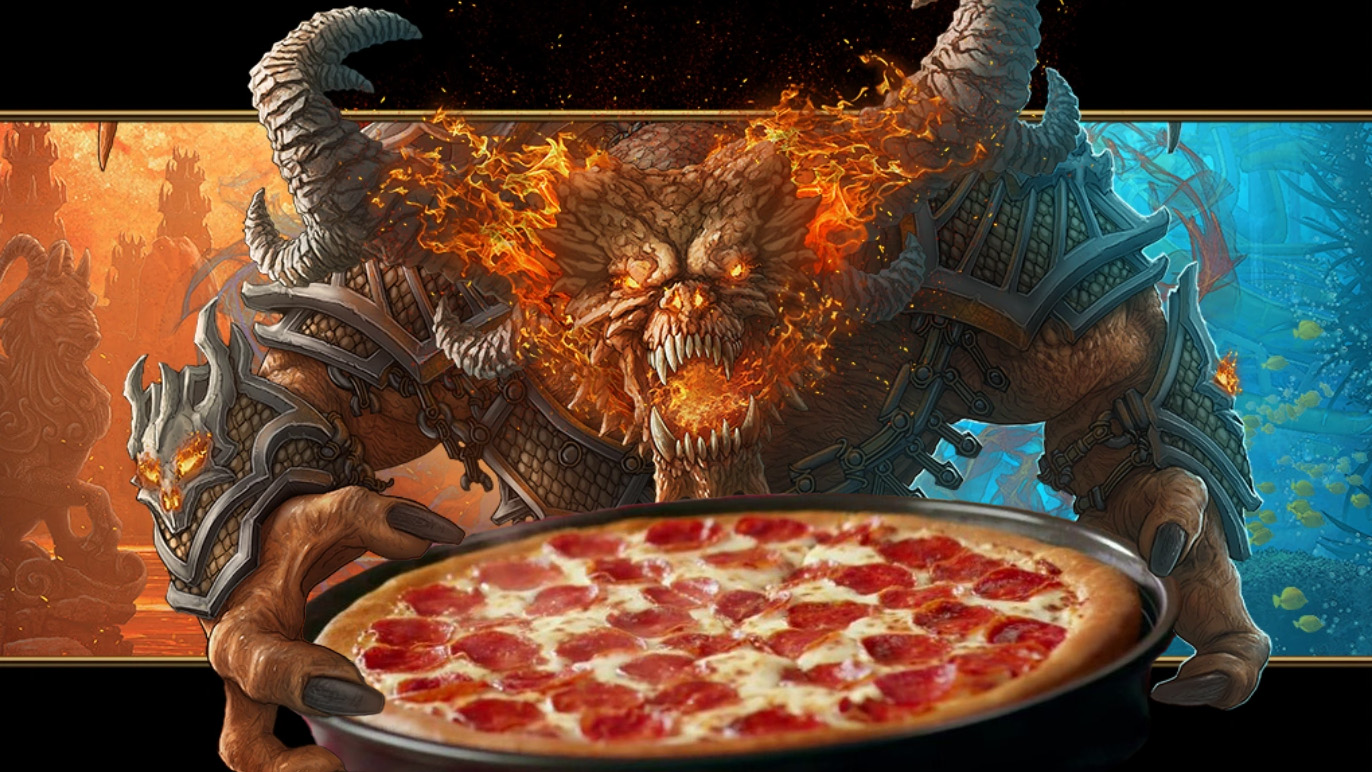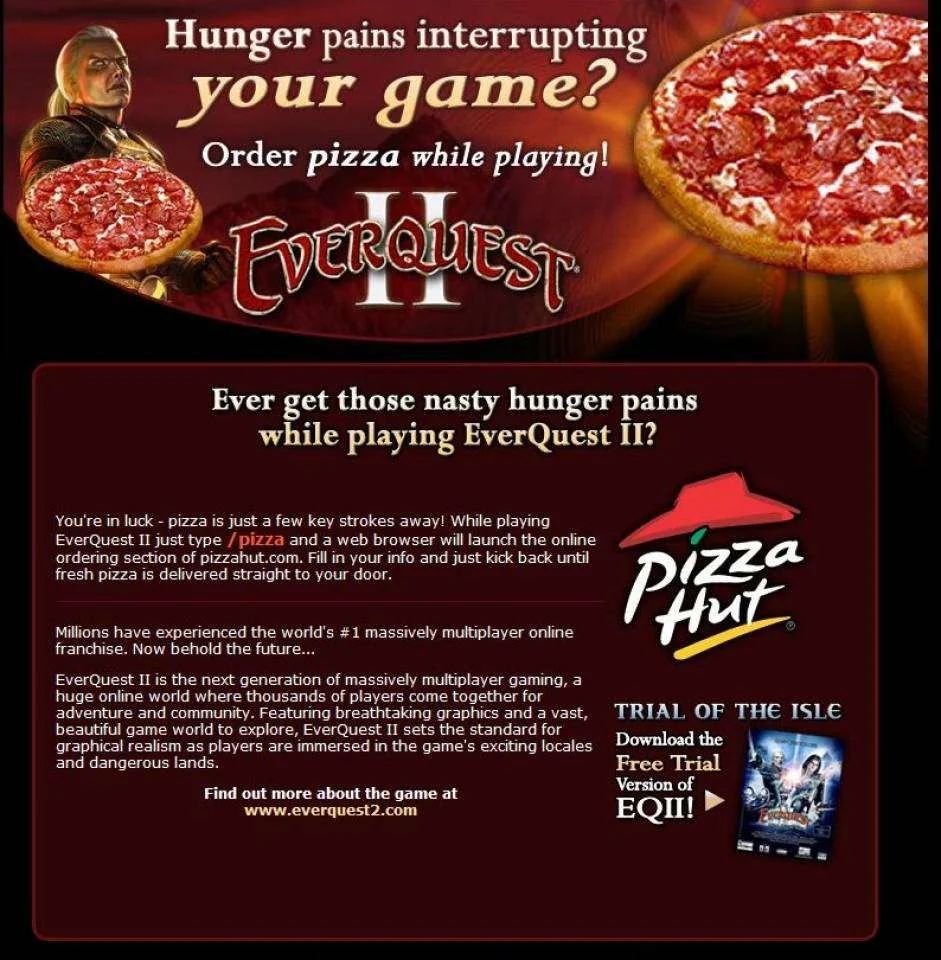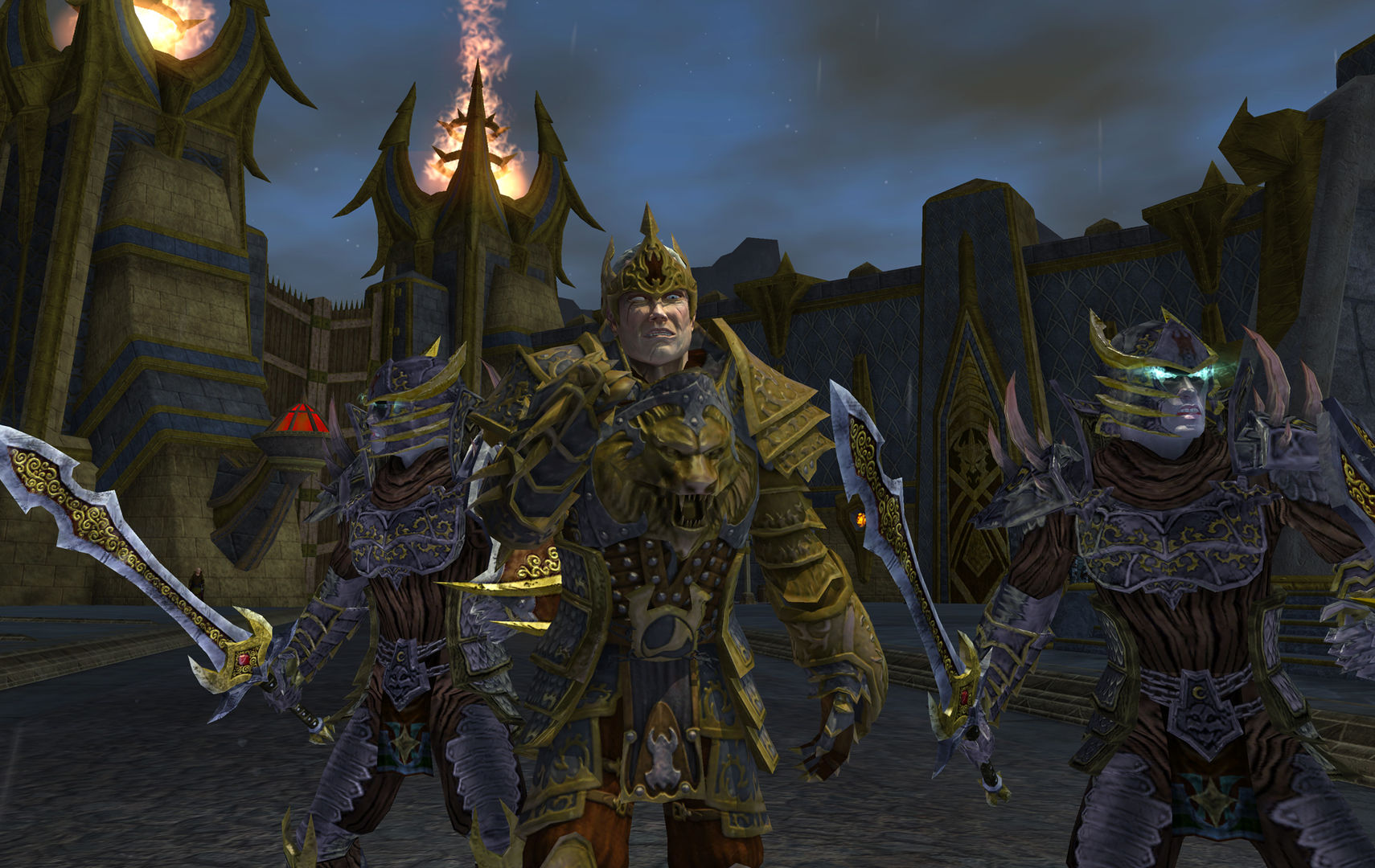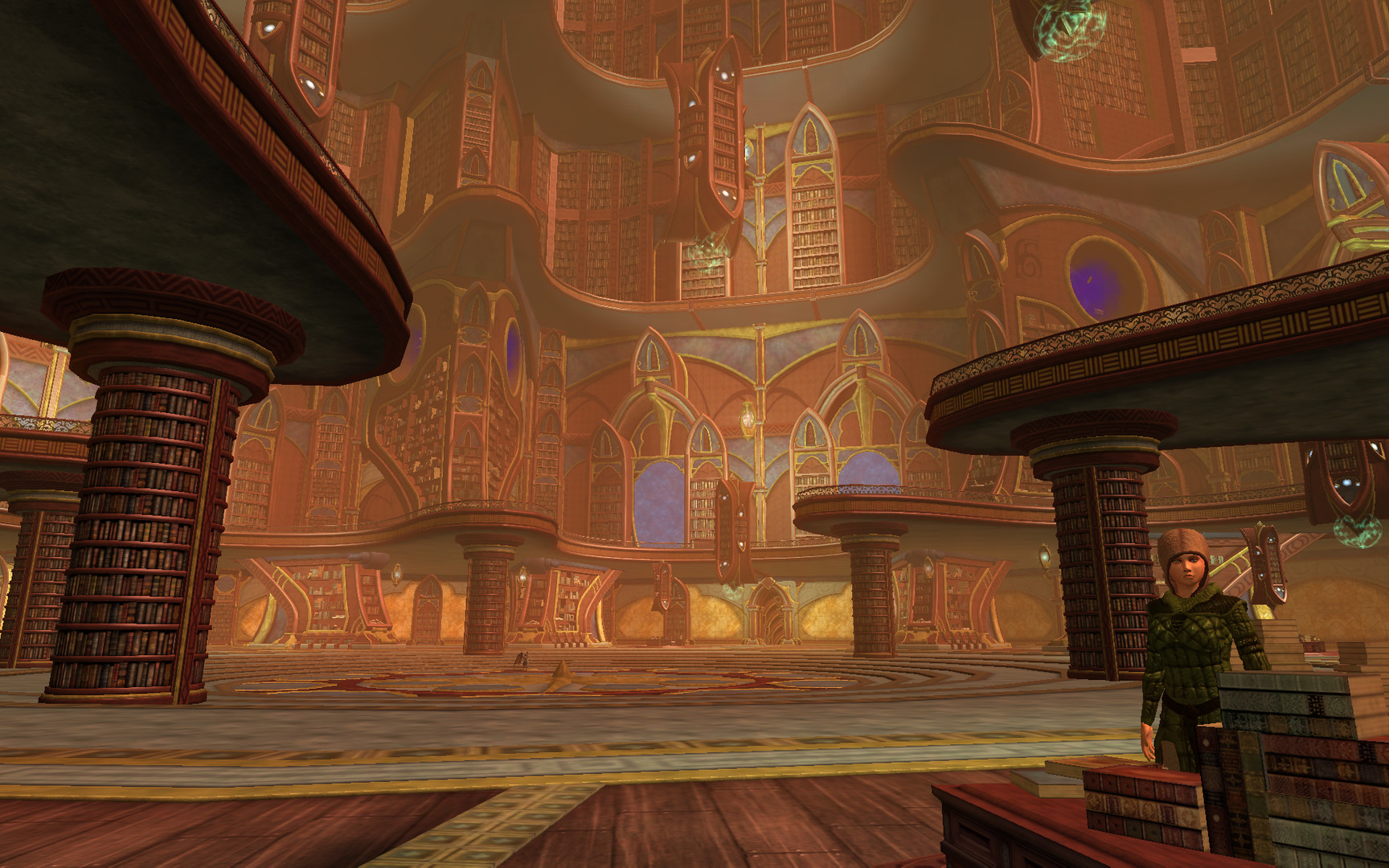
The year is 2005, and Jay Leno has just made a crack about the fast food habits of EverQuest players in the opening monologue of The Tonight Show.

"It was very much like, 'Hey, these nerds living in their basement, what are they going to do next? Are they just gonna put IVs in their arms so that they don't even have to get up?' It was the typical stupid Jay Leno joke for grandparents," Chris Kramer says. "But we didn't care. We got EverQuest 2 mentioned on The Tonight Show."
At the time, EverQuest 2 was just a few months old, and it was a bad moment to be running an MMO. "The constant pressure was that Warcraft was kicking our ass," says Kramer, a gaming industry veteran and former PR head for Sony Online Entertainment. "The games came out literally days apart and Warcraft blew up. Obviously." On paper EverQuest 2 was the safer bet. It was the follow-up to an MMO that had been dominant for half a decade. "WoW was just a really, really slick version of EverQuest," Kramer says. "The original WoW team were all hardcore EverQuest players."
Rather than a mere clone, however, WoW represented a quantum leap forward in approachability. Blizzard streamlined online play, making it easy for players to find each other and removing the things that were "terrible-slash-amazing" about EverQuest, like experience loss. To make matters worse, SOE was competing with itself. After five years and eight expansions, the original EverQuest playerbase wasn't about to uproot itself and adopt a new home—not even the next-gen condo next door. "They made an exponentially better version," Kramer says, "and they already had that amazing world that they built up over three Warcraft games. So they were very rightly kicking the crap out of us."
But in 2005 it was Everquest 2, not World of Warcraft, that made it on The Tonight Show by tapping into something practically all MMO players were guaranteed to love: Pizza.
A gift from heaven

With EverQuest's house divided, Warcraft was handed a flawless victory in its first year, and SOE's marketing team was left scrambling to win attention. At the time Sony Online was owned by Sony Pictures, and Kramer says there was a lot of pressure from executives to pull in huge player numbers like WoW, which would reach five million subscribers by the end of 2005.
Enter Louis Figueroa. As a member of SOE's business development group, his job was to drive awareness of the company's games through partnerships. "In that era, eight fucking logos would pop up before the game would start, and all those logos were paid for and placed," Kramer says. "That was Louis doing his best to help bring money in on the project."
Figueroa remembers a particularly long lunch where different departments came together and laughed about the slash commands EverQuest players used to create macros and shortcuts for certain actions—like /sit, /walk, /run or /attack. "Adding our own amusing slash commands to the already swelling list, we joked about creating commands for /beer, /laundry, and /pizza," he says.
Lunch ended, but the idea of /pizza continued to swirl around Figueroa's head. It was both a joke and a serious crossover promotional opportunity. He began cold-calling pizza delivery companies, and spent a day moving from office to office, consulting game designers, producers, PR, community developers, and company president John Smedley—anyone he thought might veto his experiment. "No one loved the idea, but they didn't hate it either," Figueroa says. "Most laughed or thought it was silly, but no one said they would block it."
Kramer recalls a Monday meeting where /pizza was discussed by SOE's "war council" of department heads. "I just knew immediately: 'We have to do this.'" Once Pizza Hut was on board, implementing the command was the work of 10 minutes and a few lines of code. The dev team rigged up a system whereby the '/pizza' prompt would bring up a web browser in which you could order directly from the Pizza Hut site. It went live in the next day's patch. "No one believed it would generate any news or garner new players," Figueroa says. "They put a short blurb about it in the patch notes, and that was it. There were no planned announcements."

We were so successful telling a story about /pizza that it annihilated Pizza Hut from SEO for about a month
Chris Kramer
Then the San Jose Mercury News got hold of it. "They were one of the first newspapers in the US to have a really good online presence, and because they were in Silicon Valley, a lot of their writing was focused on tech," Kramer says. "There was a guy writing for them who was almost a tech gossip columnist. He broke news. And so I just sent him a note. It was really simple, just an email that said, 'We're going to let people order pizza through our online game.'"
The writer immediately contacted Kramer to hear more. "He wrote just a couple sentences, but because so many people at that time were reading his column, it splashed everywhere outside of games," Kramer says. "And everybody was like, 'This is weird'. But it was just the right kind of weird. It was the sort of thing that people could put on their blog or website, and they could make a funny joke, and the whole thing was very clickable. It was perfect."
Something about the archetypal online gamer refusing to leave their chair for sustenance tickled the mainstream, and more than a year before South Park's culturally defining "Make Love, Not Warcraft" episode aired, /pizza caught fire. Within a week, Leno had delivered his line about EverQuest 2 to a late-night national television audience.

It didn't matter that, functionally, /pizza was simple and throwaway. "You didn't really order a pizza within the game," Kramer says. "Your EverQuest character didn't pull out a mobile phone and call Pizza Hut." The kind of browser implementation that enabled /pizza has since become commonplace with the rise of microtransactions. But the idea was evocative. "It was this magical, fun thing," Kramer says. "From a PR perspective it was a gift from heaven."
A couple of weeks after SOE started the promotion, /pizza had been picked up by CNN, Fox News and the Wall Street Journal. EverQuest was on the lips of people who would never have encountered it otherwise. And at that point, it became a problem.
Extra toppings

"Louis comes to me and he goes, 'Hey man, you need to stop pushing /pizza out there,'" Kramer says. "'You've gotta shut it down. I just had an hour-long meeting where Pizza Hut was yelling at me. They want to end the promotion immediately.'"
The delivery company had discovered that, if you were to Google 'pizza hut', its website was no longer the first result. It had been displaced by EverQuest 2—gobbled up by the success of the promotion.
"We were so successful telling a story about /pizza that it annihilated Pizza Hut from SEO for about a month," Kramer says. "I think Pizza Hut had to start buying placement for search, and the executives were furious." (Figueroa himself doesn't recall the debacle, but it "does not surprise" him.)
It was then that Kramer knew that /pizza had been a marketing coup like no other. "It's great that Jay Leno made a joke for grandparents," he says. "But honestly, having EverQuest 2 knock Pizza Hut out of Google SEO? That was like, 'Good job, everybody.'"
Despite the pushback, /pizza felt like a huge win for the team at SOE, who had spent months in WoW's shadow "getting dwarfed by our own grandchild, essentially." Developers who had been skeptical of the promotion in the beginning ultimately came around. "These guys in San Diego were like, 'My parents didn't understand what I did for a living, but now all of a sudden it's in newspapers and on Jay Leno,'" Kramer says. "It made the team feel good."
From the off, Figueroa was worried about what the players would think. "I didn't think the primary issues would be technical, but cultural," he says. "Bringing a real-world element inside a fantasy-world game, and whether this might alienate gamers by compromising the immersive fantasy experience, was my biggest fear." You can still find the odd forum post decrying the misuse of Christopher Lee character Lucan D'Lere ("Seriously, whenever I see Lucan now I'm always going to think about him holding out the pizza."). But on the whole, the playerbase got behind the joke. "They found it very funny," Kramer says. "It just worked across the board."

/pizza was a phenomenon written in a language the Sony Pictures execs could understand
If the story of EverQuest 2 ended with a shock reversal of fortune and WoW in the dust, we'd know about it by now. In the end, /pizza triggered only a small spike in game downloads and subscriptions. But the new public awareness helped SOE when it came to dealing with its overlords. "The people at Sony Pictures did not understand what we were doing at all," Kramer says. "They knew it was kind of profitable, they knew we were doing interesting things, but they really didn't get it. They didn't give a shit. They were making Spider-Man movies, starting up animation houses and doing Jeopardy. These online fantasy games were not Hollywood sexy and they didn't care."
/pizza, though, was a phenomenon written in a language the Sony Pictures execs could understand. "There were several different audience segments that were attempting to reach with our communications campaign, and one of those segments were the Hollywood folks that we reported up to," Kramer says. "Mission accomplished. There were a lot of folks in the Sony studios who were patting themselves on the back for that."
These days Figueroa is senior director of ops and strategy for PlayStation's global esports business. /pizza was an important moment for him. "I learned that even a dumb or silly idea backed by a clear vision and a good pitch can yield exciting results," he says. It's a lesson he's taken forward through his career.
Kramer, meanwhile, now works as a comms exec for Tencent—and points out that the subscriber numbers SOE once battled for would barely register as a rounding error in Fortnite. "There are probably more people playing League of Legends at this minute than were ever subscribed to EverQuest," he says. "But at that point in time, it certainly seemed gigantic, it seemed unbelievable. It certainly drove a very profitable business for a very long time."
This year, EverQuest 2 and its predecessor are celebrating their 20th and 25th anniversaries respectively—the two games now coexisting comfortably, while WoW sits undisturbed on its frozen throne. One MMO had to win, but as it turns out, none had to die. And hey: if you search for Pizza Hut now, the delivery company is the very first result. All's well that ends well—especially if there's a slice of steaming deep dish in your hand.







